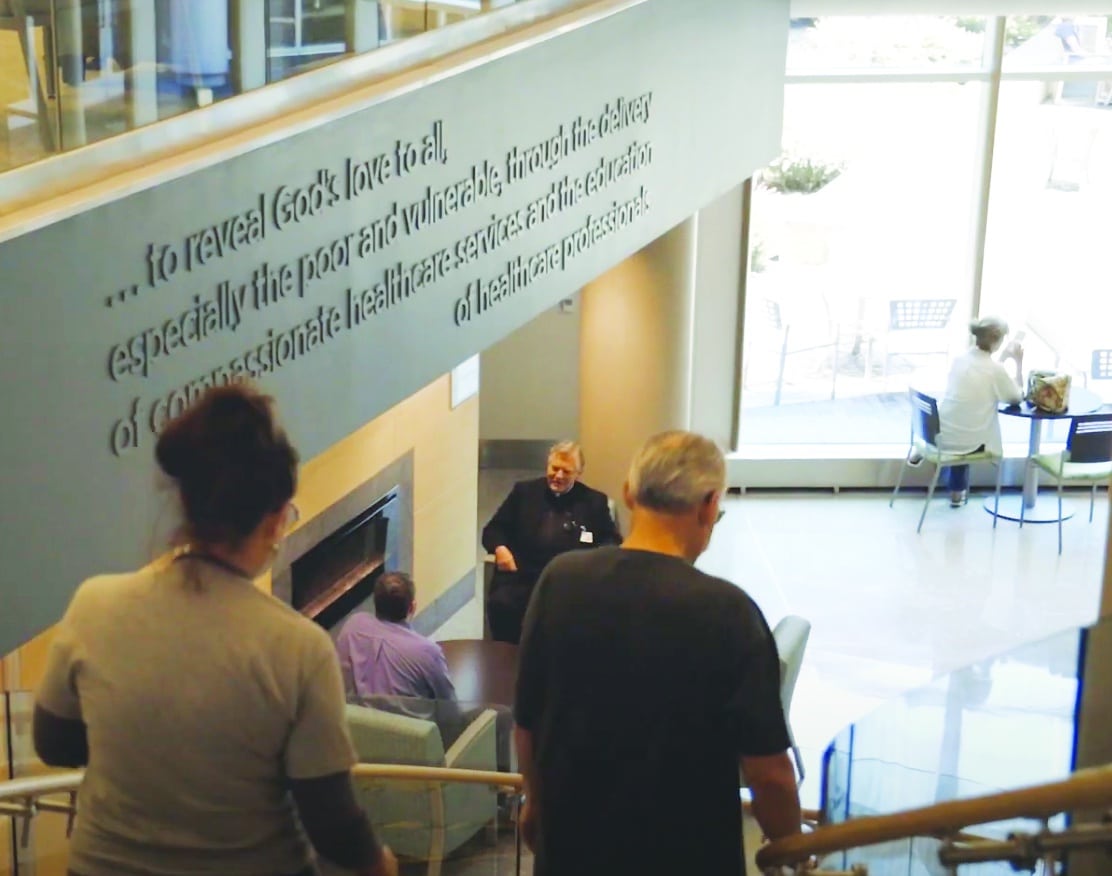By Eileen Connelly, OSU
As a longtime hospital chaplain, Anne Petratis is committed to meeting the spiritual needs of her patients and their families at the six medical facilities where she serves (Kettering, Grandview, Southview, Sycamore, Kettering Behavioral Health, and Soin hospitals, all in the Dayton area). The past two years of her ministry have been both challenging and rewarding as she and her colleagues in the health care profession have adjusted to the “new normal” brought on by COVID-19.
For long stretches since 2020, Petratis said, chaplains’ ministry was impacted by the absence of the dedicated volunteers they rely on to help bring Communion to patients. “It wasn’t safe for the volunteers to come work with us in the hospital setting,” she explained. “For almost the entire first year of COVID, they weren’t here with us. Even until the end of 2021 and into 2022, they were not able to help because Omicron was so active in our area and so contagious and deadly.”
“The new normal for us is that we now are able to have volunteers safely return and be able to assist us by bringing communion to the Catholic patients, family members, and, staff,” she said. “I hear constant comments from our staff on how much they have missed our volunteers and how happy they are to see them back out there on the floors making visits.”
When the volunteers weren’t present, Petratis traveled between the six different hospitals to distribute Communion. She’s especially grateful to several priests from the Archdiocese who continued to minister to patients during COVID, including Fathers Basil Toan Quang Doan, Ron Combs, Pat Slonaker, Chris Worland, Greg Konerman, Kip Stander, Tim Fehey, and Andrew Cordonnier.
Petratis readily acknowledges how heartbreaking chaplaincy has been over the past two years. “I don’t think in all the 27 years I’ve served as a chaplain that I have ever felt this stretched in trying to meet patient, family, and staff needs,” she said. “Also, I have never before witnessed the number of patient deaths that I have seen. It has been a profound experience to see the suffering of so many people. To see so many families lose their loved ones and to attempt to provide support to our patients, our family members, and our staff who are and continue to hurt so much has profoundly humbling and moving. There are just some patients and families that I will never forget.”
One of the most touching parts of the new normal for Petratis is to be able to have large groups of family members come in and be with their loved ones again when they are having a serious surgery or if the patient is close to death. “It has been so beautiful to be able to gather those large families together and to be able to offer prayers and do a mini-Communion service with their loved ones present. Throughout all the ups and downs of COVID, I had forgotten how much I love gathering together like this. These moments are so holy, and I’m so thankful for once again to be able to gather in this way,” Petratis said.
Other aspects of the new normal that have been gratifying for Petratis to witness are how much the Eucharist means to patients and staff, along with the way relationships with her colleagues deepened and grew during the height of COVID. “It has been, and for many continues to be, such an isolating experience,” she said. “Seniors and those with serious chronic health conditions have been dramatically impacted. In the hospital, we see many people who are isolated and need our visits and someone to talk with and pray with. Throughout all of COVID, so many people who have not been able to go to church because of health concerns, or who are the full-time caretakers for a loved one with health challenges, have shared beautiful reflections on what receiving Eucharist means to them. I feel so humbled and thankful to have had these conversations during the pandemic. It has shown me in a deeply meaningful way how important it is that we come to the hospital and bring Communion as often as we can. I’m so thankful to patients, family members, and our staff who have shared or have reflected on what Eucharist means to them.”
“COVID has taught me how important it is to connect to our staff,” she added, “to look them in the eye to ask them how they are doing today, ask about their family, their sick mom or dad. It has taught me to slow down, listen more deeply and smile. Even with the mask on, people can see your eyes crinkle and that you are smiling at them. I’ve been reminded how important it is to be present and to be someone that staff can find when they just need a short talk break amid a challenging day.”
Petratis was especially grateful and excited to report that “we reached zero COVID cases in our hospitals on about April 5, 2022. On April 7, the administration across the network got large ‘0’ balloons and put them everywhere to celebrate that we had no COVID. Our staff was so happy that day. Everyone seemed lighter; you could just feel a sense of joy that I had not felt in a long time in our staff.”
Petratis expressed her thanks to CMA donors, saying, “Without your generosity and support our ministry would not be able to reach so many people. Just in looking at the high cost of gas and all the traveling that our ministry does between the hospitals, we are truly blessed to have such generous support.”
She also requested that CMA contributors continue to pray for all health care workers. “The last two years have been very difficult on many very dedicated people,” Petratis said. “Please pray for healing for all those health care workers who are suffering trauma and stress from caring for so many months for the very sickest COVID patients. It is not just the doctors and the nurses who are impacted; it is everyone who was working with these so seriously ill patients for so many months, from the housekeeping staff to the food service staff, to the respiratory therapists, to the physical therapists who are continuing to help the patients who are suffering still with the effects of COVID.”

